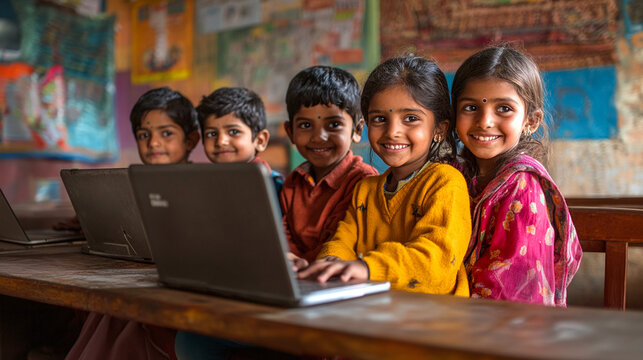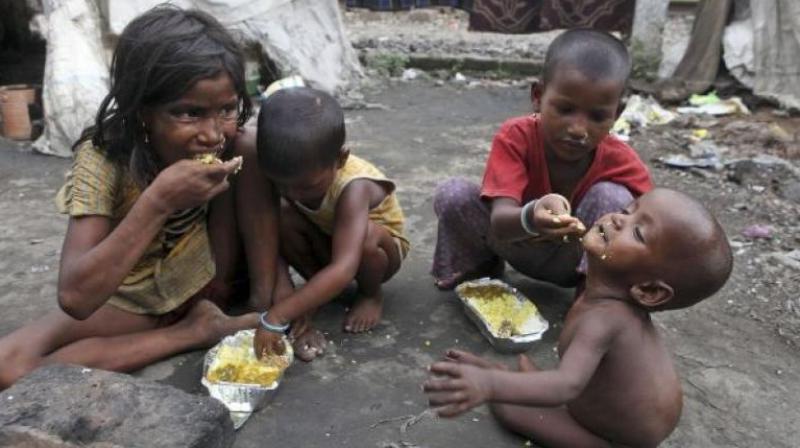Education is one of the most powerful tools to break the cycle of poverty. It is the foundation upon which individuals build their lives, careers, and dreams. For poor children, education is not just a right — it is a lifeline. It opens the door to opportunities that otherwise would remain closed forever. In a world where millions of children are trapped in poverty, ensuring they receive quality education is both a moral responsibility and a practical necessity for the future of society.
---
The Cycle of Poverty and How Education Breaks It
Poverty is a vicious cycle. Poor families often cannot afford proper food, healthcare, or shelter, let alone quality education for their children. As a result, children from such backgrounds are more likely to grow up without the skills or knowledge required to find stable employment. This lack of opportunity keeps them poor and continues the cycle into the next generation.
Education is the most effective tool to break this cycle. When a child from a poor family receives an education, they gain the ability to secure a better job, earn a decent income, and support their family. Over time, educated individuals can uplift entire communities by contributing economically and socially.
---
Empowerment Through Knowledge
Education empowers children. It gives them a sense of purpose, confidence, and self-worth. A poor child who learns to read and write is no longer helpless in society — they can now access information, make informed decisions, and stand up for their rights.
Moreover, education provides awareness. Many children from poor backgrounds are unaware of hygiene, health practices, laws, or their own rights. Through school, they learn how to take care of their health, avoid exploitation, and dream of a better future. This kind of empowerment is especially crucial in areas where children are vulnerable to child labor, early marriage, or abuse.
---
Education Reduces Child Labor and Exploitation
One of the major issues affecting poor children is child labor. Due to financial struggles, families often force their children to work at a young age. These children lose their childhoods and are exposed to harsh, unsafe, and exploitative environments. They are denied the opportunity to learn, play, and grow.
Education provides an alternative path. When children go to school, they are protected from child labor. Governments and NGOs can more easily track children in school and intervene if they drop out. Over time, educated families are less likely to send their children to work, as they understand the value of schooling. Education helps change mindsets and encourages long-term thinking about children’s futures.
---
Economic Benefits for the Nation
Educating poor children is not only beneficial for individual families — it strengthens the entire nation. An educated population is a productive population. When more children grow up to become skilled workers, entrepreneurs, doctors, teachers, engineers, and leaders, the economy grows.
Countries that invest in education have lower crime rates, stronger institutions, and higher GDPs. Conversely, nations that neglect the education of their poor citizens suffer from unemployment, social unrest, and poverty. Therefore, education is not just a social issue but an economic one. It is an investment in the country's future.
---
Equality and Social Justice
Every child, regardless of their economic background, deserves an equal chance to succeed. Education is the great equalizer — it gives every child, rich or poor, the same opportunity to learn and grow.
Unfortunately, in many parts of the world, poor children face discrimination and inequality. Schools in rural or impoverished areas often lack basic infrastructure, teachers, or learning materials. By focusing on improving education for the poor, we can reduce the gap between the privileged and the underprivileged. A society that provides equal educational opportunities to all children promotes fairness, inclusion, and social justice.
---
Girls’ Education: A Special Focus
Among poor children, girls face even more challenges. In many communities, girls are not sent to school due to traditional gender roles, safety concerns, or early marriage. Educating girls is one of the most powerful ways to transform a society.
An educated girl is more likely to marry later, have fewer and healthier children, and contribute to the economy. She is also more likely to ensure her own children go to school, creating a positive cycle for future generations. Therefore, when we talk about poor children’s education, we must place special attention on educating poor girls.
---
Barriers to Education for Poor Children
Despite its importance, poor children face many barriers to education:
1. Financial constraints – Lack of money for school fees, uniforms, books, or transportation.
2. Lack of schools – Especially in rural or remote areas.
3. Poor school infrastructure – Inadequate classrooms, no toilets, no drinking water.
4. Low quality of teaching – Undertrained or absent teachers.
5. Cultural factors – Child labor, early marriage, and gender discrimination.
6. Lack of awareness – Parents may not understand the value of education.
To overcome these challenges, governments, NGOs, and communities must work together. Free education, mid-day meals, scholarships, awareness programs, and better teacher training can make a big difference.
---
The Role of Society and Government
It is not just the government’s job to ensure education for poor children — society as a whole must contribute. Local communities should encourage schooling, fight against child labor, and support families in need. Businesses can sponsor schools, NGOs can provide books and uniforms, and individuals can volunteer to teach or donate.
Government policies should ensure free and compulsory education for all children. Programs like Right to Education (RTE) in India are a step in the right direction. But implementation must be strong. Monitoring, infrastructure development, teacher accountability, and targeted programs for the most marginalized groups are essential.
---
Conclusion
The education of poor children is not a luxury — it is a necessity. It is the foundation for a better, more just, and more prosperous world. By giving every child the chance to go to school, we are not just changing individual lives — we are shaping the future of entire communities and nations.
No child should be denied an education because of poverty. It is our moral duty and our social responsibility to ensure that every child, regardless of their background, has the opportunity to learn, grow, and succeed. A world where poor children are educated is a world with less hunger, less violence, and more hope. And that is a world worth striving for.

